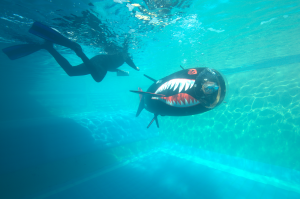My thoughts this week start from an email a student who has just finished a conjoint degree sent me recently. The subject line was "Thank you for 5 years of awesome!" She'd really enjoyed the time she had spent in the Department and acknowledged the culture in the Department that aims to ensure students have an outstanding experience while they are with us. In turn working with those students means the roles our staff have can offer a lot of job satisfaction.
Thinking about 2017 I want to explore how to use the skills, knowledge and energy of staff and students here to help build New Zealand into a country that is more "awesome" for all concerned. Once we return from a summer break we'll be moving into a round of bidding for government research funding through the Ministry of Business, Innovation and Employment (MBIE). The Ministry stated an aim in 2015 "to support an increase in real median household income of 40 per cent by 2025, from $1,300 (in 2012) to $1,800 per week".
Supporting that target MBIE have three objectives:
- more competitive businesses – doubling labour productivity growth and increasing the real exports to gross domestic product (GDP) ratio to 40 per cent
- job opportunities for all – achieving an ongoing unemployment rate below 4 per cent
- affordable housing – a lower ratio of housing cost to income.
MBIE acknowedges these objectives are ambitious, and they challenge any organisation seeking research funding to provide a program of work that supports these objectives.
An example of work being done in Engineering Science to address these challenges is our participation in the Science for Technological Innovation National Science Challenge. The Department is engaged in Portfolio 4 of the challenge which "aims to enable organisations to combine analytics techniques and new ICT methods to create value from large quantities of data through better processing, presentation, collaboration and decision-making tools." Portfolio 4 is led by Professor Andy Philpott. It has a spearhead project known as R five which is "a collaborative modelling effort looking at the effects on New Zealand businesses of randomness, risk, rivals, remoteness and resource limitations." The project includes a particular focus on Māori capacity development (led in the Department by Assoc. Professor Andrew Mason).
The Faculty of Engineering has recently signed a new partnership with the Federation of Māori Authorities and looks forward to building closer ties between engineering researchers and Māori enterprises.
So with MBIE bids firmly on my list of "homework" for 2017 I will sign off for 2016.
Best wishes for Christmas and the New Year,
Rosalind



